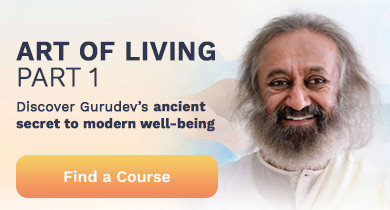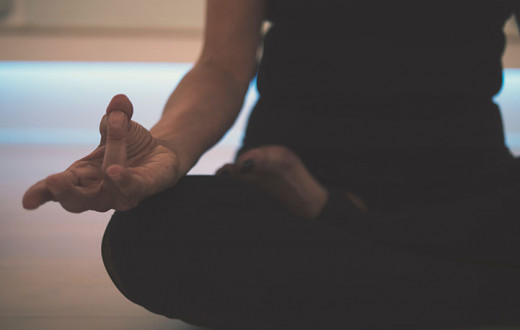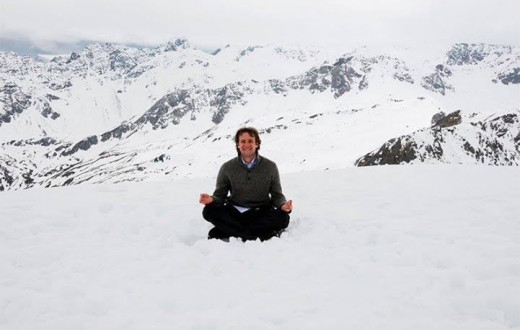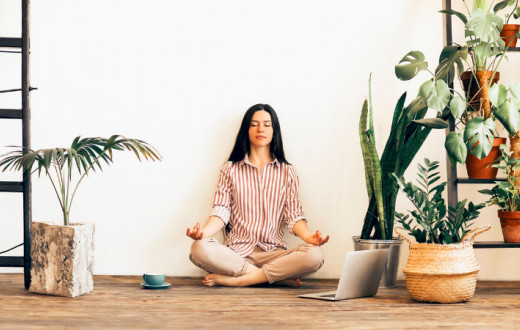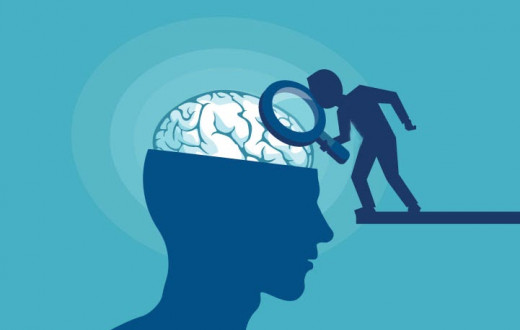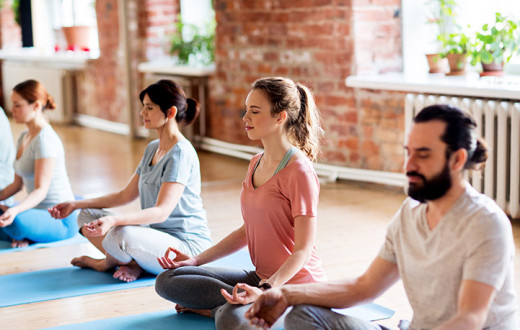
Are you tired of being tired? Having difficulty falling asleep? You’re not alone. It is estimated that about a third of Americans experience insomnia symptoms regularly. But there’s good news for those who have trouble falling asleep or staying asleep. Meditation can help you fall asleep effortlessly. Research shows it can also help you experience deep sleep! Let’s explore the options for meditation for sleep so you can feel rested from the moment you wake up.
Understanding the importance of sleep
Sleep plays a crucial role in physical and mental health, with restful sleep essential for overall well-being. Ask anyone who hasn’t slept well, and they will tell you it has affected them significantly. Poor sleep quality can lead to a range of health issues, including stress, anxiety, and decreased cognitive function. Lower immunity and nearly all diseases also have at least some connection with sleep quality.
Establishing better sleep habits can significantly reduce anxiety and impact daily life, improving mood, energy levels, and productivity. But beyond improving sleep habits, self-care tools like meditation and breathwork also positively impact sleep quality.
Common causes of sleep problems

#1 Sleep routine
Are you keeping a regular sleep schedule? Are you sleeping during the day? What is the duration of your sleep?
Going to bed at the same time every night and waking up at the same time in the morning helps you get in sync with your body’s natural wake/sleep cycle. Most people need to sleep around 6-8 hours per night. You can set your body’s internal clock by going to bed at the same time every night and waking up at the same time every morning as well.
Sleeping during the day can worsen insomnia, so avoid it if possible, but if you must, keep it brief! A 10-minute “power nap” or a body scan or Yoga Nidra can help. Recharge without risking sleepless nights.
#2 Overworking
Are you burning the candle at both ends? Is your problem physical or mental fatigue, maybe both? Are you unable to relax and unwind?
Finding work-life balance can be challenging, but the payoff is worth the effort. Winding down with yoga and meditation addresses mental and physical fatigue while prepping for sleep hours later. Too much fatigue can actually make relaxing and letting go of stress more challenging.
#3 Late-night snacking
Who doesn’t love a snack!?! But if you eat that snack too late in the evening, digestion could keep you awake longer than you’d like. The digestive system has a natural rhythm that slows down in the evening. Eating late at night puts pressure on the digestive system and kicks the body into overdrive when it really wants to rest.
If you want to sleep better, avoid stimulating foods and drinks, especially in the evening. Instead, consume light and easily digestible food. Warm milk (including non-dairy), some grains like oatmeal or rice, a little peanut butter or a few almonds, and fruits like bananas and cherries are sleep-friendly if you want to eat before bed. Calming herbal tea or golden milk tends to help the most.
How meditation can help with sleep

Meditation can help regulate sleep patterns and improve sleep quality by promoting relaxation and reducing stress
Guided sleep meditations can help individuals fall asleep faster and achieve deeper, more restorative sleep
Regular meditation practice can also help address underlying sleep difficulties, such as trouble falling asleep or staying asleep
Guided sleep meditations
Guided sleep meditations typically employ techniques such as deep breathing, progressive muscle relaxation, guided imagery, and visualization to promote relaxation. Guided sleep meditations can also help individuals overcome sleep difficulties associated with menopause, nightmares, and other sleep-related issues.
Guided sleep meditations can be found on meditation apps like the Sattva app, offering a range of options to make personalized content for individual needs.
One popular meditation for sleep method that many former insomniacs use is a body scan meditation or Yoga Nidra (see below). The basic idea is to slowly scan your body from your toes to the top of your head while keeping your attention on the present moment.
Other types of guided meditations include retracing your day, counting backward, and relaxing visualizations. These can also be unguided and practiced independently with little to no effort.
Would you like to meditate right now?
Click on the video below and start meditating with this guided meditation for sleep, led by meditation master Gurudev Sri Sri Ravi Shankar.
Tips for using guided sleep meditations
To get the most out of guided sleep mditations, it’s essential to create an environment conducive to sleep and free from distractions and interruptions
Practice good sleep hygiene
Go to bed and wake up at the same time every day
Minimize screen time and avoid altogether two hours before bed
Keep your sleeping area dark and on the cooler side
Experiment with different guided meditations to find what works best for you
Regular practice can help build a consistent sleep routine, leading to improved sleep quality and overall wellbeing
Did you know?
Did you know that meditation is best practiced before meals?
Did you know that a little time spent in meditation makes up for lost sleep and increases your energy?
Choosing the right meditation technique for your needs

Meditation techniques are some of the best sleep aids out there. When selecting a meditation technique, consider factors such as ease of use and overall benefits. Some techniques yield immediate results, while others provide significant results over time. Experiment with different meditations to find what works best for you, and don’t be afraid to try new approaches to address specific sleep challenges.
Check out the meditation practices below to find one that works for you!
Breath awareness
A good way to begin is with simple breath awareness. Take time to gently observe the flow of your breath. While sitting or lying down, carefully observe your inhalation and exhalation. Follow your breath as it enters the body and leaves, gradually extending your inhalation and exhalation in a comfortable rhythm. Notice the effect on your mind and emotions. Learn to let go and be in that calm space.
Using your breath, you can relax your mind, release tension buildup in your nervous system, and slow down your thought process. This helps induce sleep naturally.
Yogic sleep
Yoga Nidra (yogic sleep) is similar to a simple body scan but more powerful and can help bridge the gap between a wakeful mind and sleep. This guided meditation is very popular with many former insomniacs. The basic idea is to slowly scan your body from your toes to the top of your head while breathing deeply in a relaxed manner. Your whole body experiences a profound state of calm while your mind is in the present moment. This type of guided meditation can easily be used as a practice to fall asleep faster.
Here’s another guided meditation by Gurudev, Yoga Nidra, Non-Sleep Deep Rest (NSDR). Listen any time for deep relaxation and healing, or listen in bed as a sleep aid.
Mantra meditation
Mantra meditation is another effective way to increase peaceful sleep. The Sahaj Samadhi Meditation Course is the best way to learn this natural, effortless type of meditation, where the instructor gives you a special Sanskrit word (mantra). Regularly using this meditation method improves the quality of your sleep by reducing your stress.
Breath-based meditation
The very best relaxation technique for enhanced deep sleep is SKY Breath Meditation. Studies show that SKY significantly reduces stress and anxiety, resulting in improved sleep quality. And the benefits don’t stop there. Millions of SKY practitioners across the globe enjoy improvements in many areas of their lives, including an improved overall sense of well-being.
Conclusion
Meditation can be a powerful tool for achieving restful sleep and improving overall well-being.
Incorporating guided sleep meditations into your daily routine promotes relaxation, reduces stress, and improves sleep quality.
Remember to experiment with different meditations, create a sleep-conducive environment, and establish consistent sleep habits to get the most out of your meditation practice.
Related articles

Meditation for Better Sleep: How to Tuck Your Mind Into Bed
5 Sleep Hacks to Boost Your Sleep Quality
Sleep Music to Help You Fall Asleep Like a Baby! Try Tonight
Better Sleep with Melatonin Alternatives: Here’s What You Need to Know
How to Fall Back to Sleep and Feel Rested in the Morning
How to Reduce Screentime Before Bed for Quality Sleep
Use Your Circadian Rhythm to Improve Your Sleep-Wake Cycle
Beauty Sleep: More than Skin Deep and More Important than You Think
Are you Meditating or Sleeping? Understanding the Key Differences
Sleep Tips from an Ayurvedic Practitioner and Former Insomniac
How the Right Sleeping Direction Can Give You a Better Night’s Rest
Can’t Sleep? Meditation & Ujjayi Breathing Can Help You
Can Meditation Replace Sleep? Find Out Before You Try It
How to Sleep Better: 6 Tips If You Feel Tired All the Time
Yoga Nidra for Sleep: How to Sleep Better Tonight
Wake Up Easier: Top 10 Tips to Start Your Day Fresh

